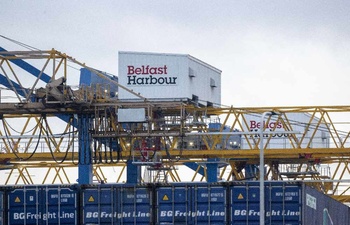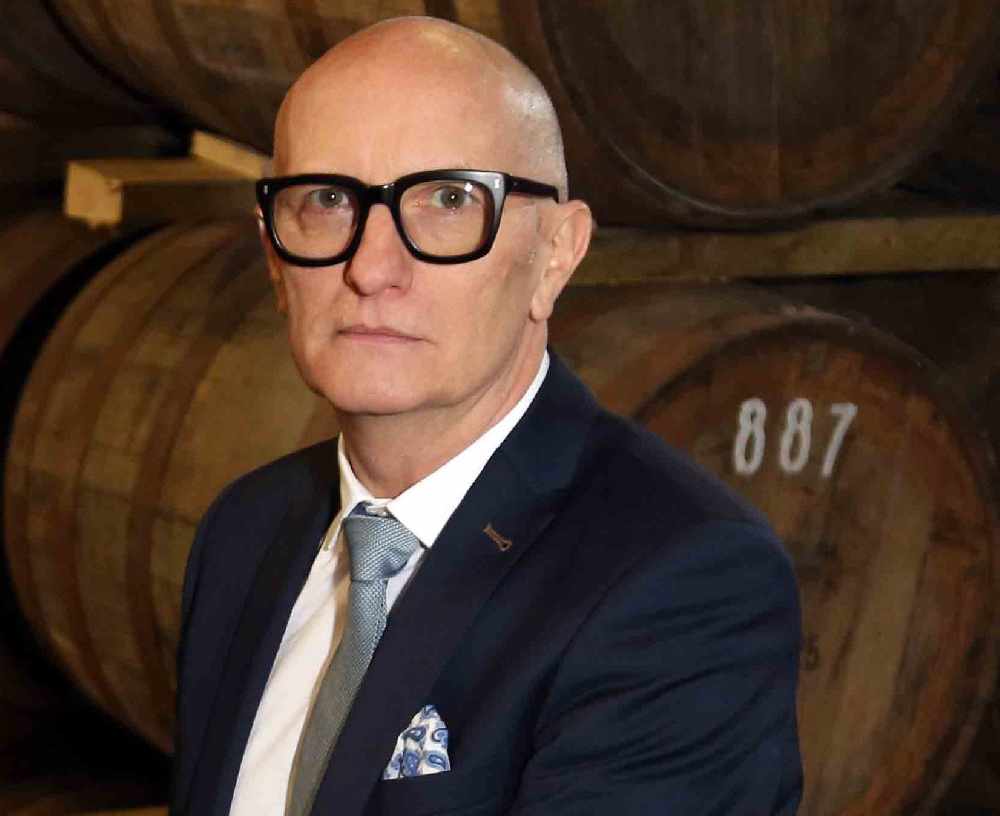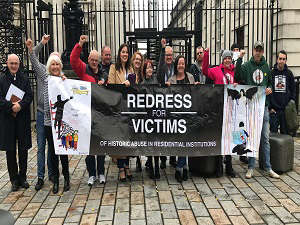
By David Young, PA
A leading food services company has expressed concern that GB suppliers are deciding that trading in Northern Ireland is not worth the hassle of extra Brexit bureaucracy.
Andrew Lynas, managing director of Coleraine-based Lynas Foodservice, told MPs that buying mozzarella cheese from one of his long-standing suppliers in England now requires eight separate processes under the Northern Ireland Protocol.
Prior to the protocol coming into effect at the end of December, he said there were no checks required.
Mr Lynas was among business representatives giving evidence to the Northern Ireland Affairs Committee on Wednesday on the implications of the extra red tape required by the contentious arrangements governing Irish Sea trade post-Brexit.
The protocol was co-designed by the EU and UK to avoid a hard border on the island of Ireland.
It achieves that by moving regulatory and customs checks to the Irish Sea, specifically on goods arriving into Northern Ireland from Great Britain.
The movement of agri-food goods are particularly tightly regulated.
Mr Lynas said he had already changed 25 GB suppliers as a consequence of the protocol and was having to re-orientate his supply chains toward Ireland and the rest of Europe.
He said a GB company that he buys food from to fulfil his contract supplying Northern Ireland schools is charging him an extra £150 per load to cover administrative costs.
“He’s saying: ‘It is just so difficult for me to supply you that I have to charge you more money,'” said Mr Lynas.
“Now, I have a fixed contract with the schools, they’re going to get their goods, but that is a hit I am taking as a business, and we are seeing more and more GB suppliers say: ‘It is hard work to deal with you.’
“If I was going to a GB supplier and saying: ‘Can I get good x from you?’… If he’s got orders from a Welsh supplier, a Scottish supplier and someone in Birmingham, and he gets my order, what position do you think my order is going to go in?
“Unfortunately, we know it’s going to come fourth.”
Mr Lynas said his business was facing paying an extra £50,000 in admin costs a year due to the protocol.
He said the new trading rules could hamper the post-Covid recovery in Northern Ireland, particularly for hospitality businesses who are not covered by grace periods that currently limit the level of red tape.
“Our greatest fear is we are trying to get up off the mat again in terms of hospitality and supply chains and volume will come back hopefully and we’re excited and people are going to go into restaurants and pubs and eat and drink.
“But then we have this problem of: how do we get goods actually there?
“And that supplier says: ‘I don’t have time to give you an order.’
“We’ve already changed 25 suppliers due to the realities of the Protocol.”
He added: “These are both small and large (suppliers) who said ‘this is too much hassle and work'”.

Colin Neill, chief executive of Hospitality Ulster, also gave evidence to the committee.
He noted the Government’s move to unilaterally extend grace periods limiting bureaucracy until October, but he warned that was not a permanent solution.
“It’s not about a neverending grace period, it’s not about how long is the grace period,” he told MPs.
“It’s how quickly can we sit down in a honest approach and solve the problems to make it work. Having a longer grace period to kick the can down the road doesn’t actually bear any fruit.
“I would much rather focus on – how do we make the systems work that we’re presented with, so our industry can grow and prosper, support employment and indeed do their bit for the Northern Ireland economy?”
Glyn Roberts, the chief executive of Retail NI, which represents small retailers in Northern Ireland, said a bespoke UK/EU agreement on agri-food goods would help address many of the problems.
He also told MPs that greater digitisation of processes could help.
“I think that we need an implementation of a digital solution which works from source to shelf which covers the logistical and technical requirements, and ensuring obviously you comply with the legislative requirements as well,” he said.
“There is a big worry about the huge amount of bureaucracy that comes with this protocol, a huge amount.
“And I think what we’ve got to do as part of this solution is look at ways that we can digitise this, make it less onerous and make sure that we can get back to some degree of normality when it comes to trade between GB and NI and make sure that it is free and unfettered.”


 Government announces Stormont Brake will not be pulled over change of EU law
Government announces Stormont Brake will not be pulled over change of EU law
 A man assaulted with hammer during robbery in South Belfast
A man assaulted with hammer during robbery in South Belfast
 Finance Minister makes 20-month Civil Service pay offer
Finance Minister makes 20-month Civil Service pay offer
 Firefighters tackle large fire at Coleraine recycling plant
Firefighters tackle large fire at Coleraine recycling plant
 Institutional abuse survivors urged to come forward before deadline passes
Institutional abuse survivors urged to come forward before deadline passes